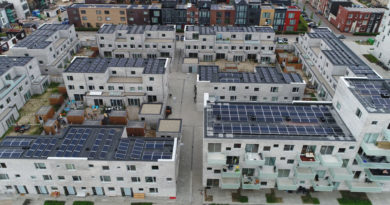The 7 States Leading India’s EV revolution
 The Wheels are moving too slowly
The Wheels are moving too slowly
While the Indian government has set an ambitious plan for electric mobility, aiming for upto 40% EV sales by 2040, action on the ground the work seems to be lagging as only 7 out of 29 states have put in place their EV policies. Till date 7 States have come up with their EV Policies or Drafts. Another 8 namely Madhya Pradesh, Bihar, Gujarat, Tamil Nadu, Chattisgarh, Odisha, Goa and Assam are reportedly expected to join in. As you would expect, these are also practically a roll call of the more industrialised or ‘richer’ states in the union. Approaches differ, with some states seeing it as a job creation opportunity, while others are focused on just the pollution angle. Key auto and ancillary hubs, be it Haryana, Rajasthan or Tamil Nadu, are still to act, as they figure out a way to balance existing incentives versus the new challengers. So lets see just what’s been happening.
- Maharashtra:
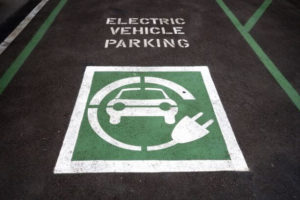
EV Chargers to become
a common site in Maharashtra
Buyer’s incentives:
- Exemption of GST, Registration Tax, Road tax
- Subsidy of 15 % on the total cost of the EV till 1 Lakh; car should be registered in Maharashtra
EV Manufacturer’s Incentive:
- Allowed to install EV chargers at Petrol/Gas stations (subject to safety clearance)
- First 250 Stations will get 25% subsidy From State govt
- maximum payout under the subsidy is capped at Rs 10 lakh per station
- To make charging the EVs cheap the charging stations will get electricity at a tariff that is on par with residential electricity rates, which is significantly cheaper than commercial electricity rates.
- implemented in only six cities: Mumbai, Pune, Nagpur, Thane, Aurangabad and Nasik.
In June Maharashtra State Electricity Distribution Corporation (MSEDEL) had proposed to charge Rs 6 per unit from EV charging stations at both HT and LT voltage levels.
- Telangana: Draft
Telangana released its EV policy draft last year, and reportedly has three components — for manufacturers, support for users who want to shift to electric vehicles from a regular vehicle and about infrastructure.
This year just a day before the event of unveiling the electronic vehicle policy, the Telangana govt pulled the plug to the EV policy. It gave no explanation but went back to the drawing board.
Later on June 29, Jayesh Ranjan, Principal Secretary, Telangana government, came forth with an explanation. He said that with the Centre and Niti Aayog working on a rebooted EV policy, the State would now adopt a wait-and-watch approach. For the record, the centre itself is moving on more of an infrastructure plus approach, rather than an incentivised approach for vehicles.
- For now, Telangana will encourage companies to set up charging infrastructure and offer concessions applicable under the industry policy.
- The State has also decided to procure battery-powered electric buses from the Goldstone-BYD combine, which has included Hyderabad in its pilot proj
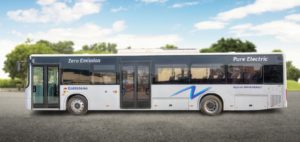 ect in 11 cities. Telangana is now contemplating issuing more contracts for electric buses.
ect in 11 cities. Telangana is now contemplating issuing more contracts for electric buses. - Meanwhile, it has tied up with cab companies and rental firms like Uber, Ola, and ZoomCar for EVs that will cater to last mile connectivity in metro stations. Talks are also underway with M&M and Tata Motors.
- Telangana power utilities also have forwarded a proposal to levy Rs 6.10/kWh from the upcoming electric vehicle (EV) charging stations.
- Uttar Pradesh: Draft
Draft Uttar Pradesh Electric Vehicles (EVs) Manufacturing Policy 2018 states different benefits to
Buyers incentives:
- 100% exemption of road tax on Transportation EVs purchased, and Vehicle registration fees of EVs manufactured within Uttar Pradesh
- 100% Interest free loans to State Government employees
- 30% subsidy on road price of EV in form of reimbursement to Individual families with Single-girl child in the State
Incentives to service providers:
- Service units setting up charging stations with capital investment of more than Rs 25 lacs but less than Rs 5crore, will be provided Capital Interest Subsidy @5% per annum for 5years in the form of reimbursement on loan for procurement of plant & machinery and setting up charging infrastructure (excluding land cost) subject to maximum ceiling of Rs 10lacs per annum per unit.
- Service units setting up charging stations with capital investment of less than Rs 25lacs, will be provided Capital Interest Subsidy @5% per annum for 5years in the form of reimbursement on loan for procurement of plant & machinery and setting up charging infrastructure (excluding land cost) subject to maximum ceiling of Rs 2lacs per annum per unit
- All service units will be eligible for 100% exemption from paying electricity duty for 10years.
Other provisions:
- Public Transportation – In order to promote EV vehicles in Public Transportation, 1000 EV buses will be introduced by the State by 2030, in phases. 25% in phase I by 2020, remaining 35% in phase II by 2022, and rest 40% in phase III by 2030.
- Further in this context, green routes will be identified by 2020 in GB Nagar, Ghaziabad, Lucknow, Kanpur, Varanasi for 100% EV public transportation.
- Private transportation: Auto rickshaws, Cabs, School buses/vans, etc will be targeted to achieve 100% electric mobility by 2030 in five cities – GB Nagar, Ghaziabad, Lucknow, Kanpur, Varanasi.
- State Govt will promote EV battery and charging equipment manufacturing in Uttar Pradesh.
Uttar Pradesh claims to be the third largest beneficiary under the Faster Adoption and Manufacturing of (Hybrid &) Electric Vehicles in India (FAME program), with over 25000 EVs on the road.
- Karnataka:
Karnataka with clear objectives in its EV policy seeks to attract 31,000 crores of investments and 55,000 jobs through it. After missing out to Tamil Nadu in the race to become an auto hub, the state clearly sees a second opportunity in EV’s.
In this it wants to create and facilitate electric vehicles and associated technologies to thrive in the state.
It has plans to achieve 100% electric mobility in: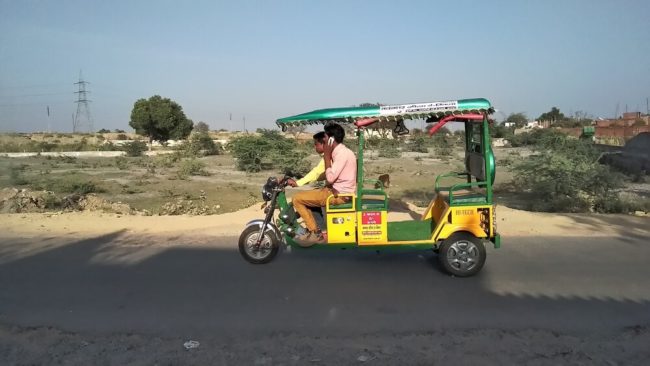
i. Auto rickshaws
ii. Cab Aggregators
iii. Corporate fleets
iv. School buses/vans
For public transport:
- Local public transport bus fleets will introduce 1000 EV buses
- Pilot project called Vayu Vaja will run in select routes to Kempegowda International airport by 2018 end
- In Goods transport: Bengaluru wants to achieve 100% Electric mobility by 2030 in a phased manner( Three wheelers/4 wheelers mini goods vehicles)
- The state has set a target of inviting investment in setting upto 5GWh of EV battery manufacturing capacity , 5000 direct jobs and 7500 overall jobs
- 100% of stamp duty, electricity duty exemption for all EV cell manufacturing, Batter pack/module manufacturing & assembly enterprises.
There are other incentives directed to speedy establishment of the EV sector in the state and support the businesses who want to venture into the sector. In order to this, the Karnataka government plans to raise new electric vehicles (EV) manufacturing zones, and bring about new charging stations in public and private areas. These include airports, railway stations, metro stations. It also hopes to encourage start-ups to work on EV-related business models.
The state government is also considering of providing concessions and other incentives for manufacturers in line with the Industrial Policy 2014-19 throughout the state.
Other Highlights include:
- The Karnataka government is set to procure 640 EVs, 40 electric buses, 100 four-wheelers and 500 three-wheelers, under the FAME program.
- Bengaluru Electricity Supply Company (BESCOM) plans to develop a charging infrastructure for EVs in Bangalore. BESCOM has announced plans to develop 11 fast-charging stations for Bangalore’s EVs.
- Bengaluru which is India’s IT and Startup Capital, has been introducing more innovations along with car aggregator companies in EV sector. Currently, Karnataka, a leading solar state, understands how to integrate renewables into the grid.
- Kerala:
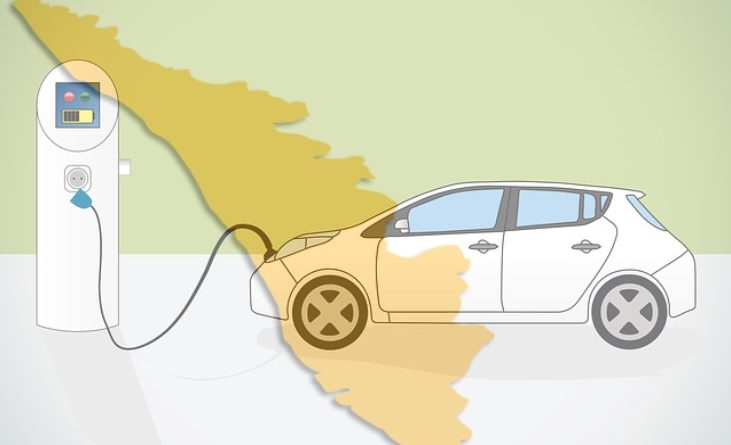 The south Western tip state of the country plans to put 1 million EV units on its road by 2022. Taking its ambition seriously, Kerala govt assigned a task force to develop e-mobility road-map, with a pilot fleet of 2,00,000 two-wheelers, 50,000 three-wheelers, 1,000 goods carriers, 3,000 buses and 100 ferry boats, ready and in operation, by 2020.
The south Western tip state of the country plans to put 1 million EV units on its road by 2022. Taking its ambition seriously, Kerala govt assigned a task force to develop e-mobility road-map, with a pilot fleet of 2,00,000 two-wheelers, 50,000 three-wheelers, 1,000 goods carriers, 3,000 buses and 100 ferry boats, ready and in operation, by 2020.
- Autorickshaws are the frontrunners of the shift to EVs as the state aims 100% electrification of vehicles by 2030. How? Kerala is also plans to go into a production facility of e-vehicles, where state PSU Kerala Automobiles will tie up in a PPP model with private vehicle makers, to manufacture electric three-wheelers.
The first priority is to convert three wheelers and stage carriers, followed by electric buses and boats. The Pilot is running in 3 districts: Thiruvananthapuram, Kochi and Kozhikode.
- The newly registered EVs will get a three-year exemption in road tax. Manufacturers will be entitled to electricity at concessional tariff, tax breaks, priority in allotment of land and investment allowance under Centre’s ‘Make in India’ policy.
- The current plan is to adopt swappable battery model as the prime mode of battery recharging. 20 charging stations are to be set up in three pilot districts and 150 swapping stations of 2W/3W/4W capacity.
Under early adoption support scheme, an incentive of Rs 30,000 or 25 percent of the EV (whichever is lower) for three wheelers will be provided for the initial period of one year.
- Uttarakhand:
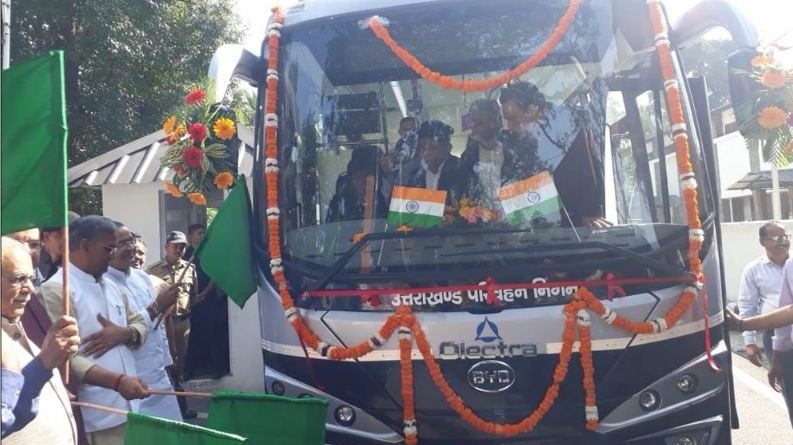
Last month in October the hilly state of Uttarakhand also rolled out its EV policy, which favoured the job side of the development. The state wants to create a suitable ecosystem to support EV manufacturers and tackle vehicular pollution.
Uttarakhand’s newly launched Vehicles policy offers loans for MSMEs to manufacture EVs and allows for tax exemption for EV buyers
Incentives for Early adopters:
- First 100,000 customers purchasing EVs in the state will not have to pay motor vehicle tax for a period of 5 years.
- First 100,000 customers purchasing commercial EVs or electric stage carriages will also be able to avail exemption from tax.
- Land provided to EV manufacturing sector will not be utilised for other purposes till 15 years.
For Entreprenuers:
- Entrepreneurs will be entitled to 100% electricity duty exemption
- It will offer term loans of Rs.100-500 million to micro, small and medium enterprises (MSMEs) to manufacture EVs.
- Manufacturing plants that have a minimum of 100 employees will benefit from government’s employee provident fund per company of Rs. 20 million.
- The state government has also planned to contribute around 30-50 per cent of overall Goods and services tax (GST) paid by the MSMEs for 5 years since their first day of production.
Additionally, the firms must also employ around 70 per cent of its staff from the state itself to avail the incentives.
- Andhra Pradesh:
Andhra Pradesh government rolled out an electric mobility policy in May this year, to give incentives to consumers, auto makers, battery manufacturers and charging infrastructure firm.
- The policy allows the complete reimbursement of road tax and registration fees, on sale of electric vehicles until 2024.
- The Andhra Pradesh plans to have 10 lakh electric vehicles or 1 million like Kerala plans on roads in the next five years.
The government has a target of attracting investment of Rs 30,000-crore in EVs manufacturing in the next five years.
- The policy also provides for 10 percent capital subsidy for the first two car manufacturing firms, stamp duty reimbursement for purchase or lease of land and state GST reimbursements.
- Manufacturing firms will also be offered discounts on power and water tariffs.
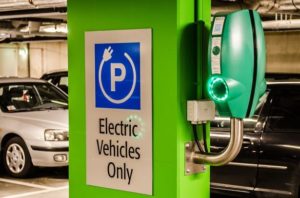
The policy also aims to replace public transport buses in four cities to electric buses by 2024 and across the state by 2030.
- Andhra Pradesh also plans to set up 50 Electric Vehicle Charging Stations in Amaravati, Vijayawada, Guntur, Visakhapatnam, Tirupati, and Tirumala.
- To increase the demand for EVs, the Andhra Pradesh state government has signed an agreement with EESL to procure 10,000 EVs.
Other States:
DELHI
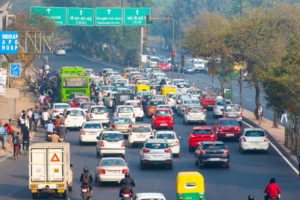
Being a constant victim of air pollution especially of vehicular pollution, Delhi being the country’s capital has yet to put in place its EV policy. Though government has taken steps to develop its public transport system on the line renewable energy, a clear EV policy is the need of the hour.
- 1,000 electric buses are expected to be introduced in Delhi’s territories by April 2019
- Delhi’s budget for the financial year (FY) 2018-19 has provision for 905 electric vehicles to facilitate last mile connectivity from metro stations.
- The Delhi government aims to boost E-rickshaws in the city through the expansion of eligibility criteria for subsidy.
- NTPC is planning to develop 20 EV charging stations within the national capital region.
- Delhi government could provide 100 per cent exemption on road tax, incentives on replacement of old vehicle and charging stations across the stations.
- Recently, Tata Motors won a separate bid to supply 10,000 EVs to Energy Efficiency Services Limited (EESL). Of those vehicles, 1,000 EVs will be procured for utilization in the New Delhi and national capital region, with service and maintenance facilities are also slated for construction in the region.
- NITI Aayog has proposed developing a quick pilot project that would provide a blueprint for the larger planned rollout of EV infrastructure in Delhi. The pilot project proposal includes 55 locations with 135 charging stations, of which 46 would be quick charging DC stations and 89 would be slower charging AC stations.
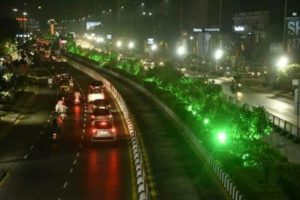
GUJARAT
- The Gujarat State Government has been providing subsidies of about Rs 10,000 to 2000 students for the purchase of two-wheeler EVs.
- Tata Motors Limited has proposed to invest over Rs 1,600 crores to manufacture electric vehicles at Motown Sanand, Near Ahmedabad.
- JSW already has plans to set up EV Plant in Gujarat. Suzuki Motors is also looking at production of Electric cars and a Battery Plant.
- Transport infrastructure is of international standards in Gujarat, it will be easy to set up EV charging infrastructure here. It’s a matter of time that the state government rolls out a specific EV policy for the state as its may fast become a hub for EV manufacturing.
- The state plans on having 600 battery operated three wheelers(E-Rickshaw) in the state up to March 31, 2019.
So now its high time that the Indian Government also rolls out its elusive EV policy, so that missing states can take their cues from it.

